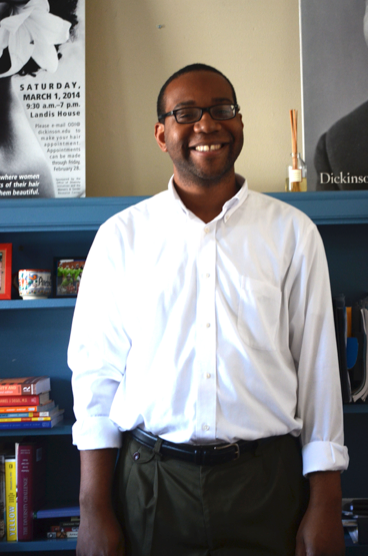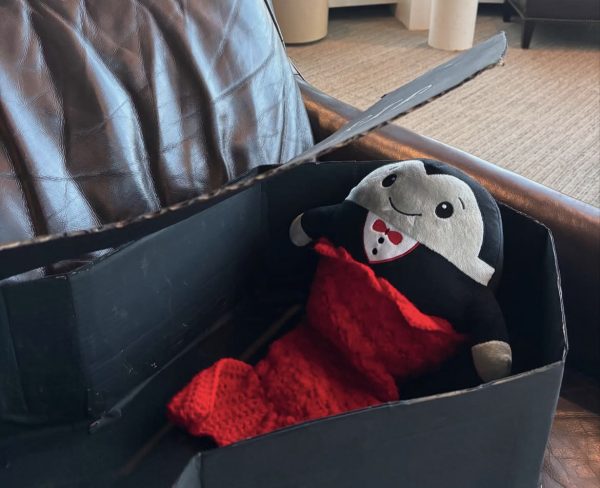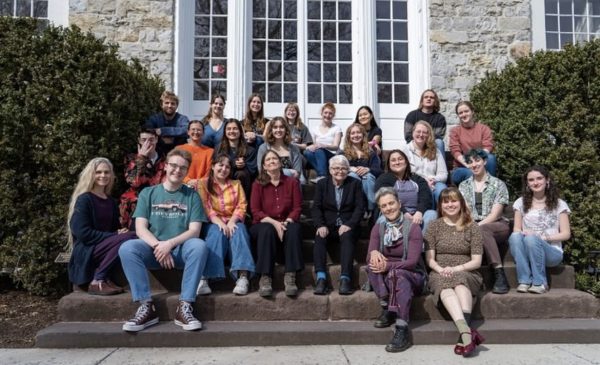Administrator Spotlight: Vincent Stephens

Director of Popel Shaw Center for Race and Ethnicity Vincent Stephens
Over the summer, Vincent L. Stephens, Ph.D. was appointed as the new director of the Popel Shaw Center for Race and Ethnicity.
Vincent received his Ph.D. in American Studies from the University of Maryland at College Park, where he also worked as a Visiting Professor for one year. Vincent’s most recent position was as Director of Multicultural Student Services at Bucknell University.
Stephens chose to come to Dickinson from Bucknell because he was enthusiastic about the idea of a liberal arts college with an academic research program. Stephens also emphasized the student-faculty-staff relationships at Dickinson.
“We can have very casual conversations, and all these layers of knowledge come out,” Stephens said on his interactions with Dickinson students. “I feel like people really want me here and want me in this role.”
Vincent believes that the biggest cultural problem facing Dickinson right now is “fostering cross cultural connections.”
“I think students have a lot of fear,” he said. “They’re afraid that, because they used to be the smartest kid in the room, because they’re accustomed to feeling confidant, when they are confronted with someone whose personal experience or background is outside of something they can relate to, there’s this instant fear and I think that’s when stereotypes and when exclusionary behavior…arise.”
Stephens says that students must overcome their fear of difference and make an effort to meet people from other backgrounds.
“People say, ‘well that’s natural that you want to be around people that are just like you.’ I will challenge that and say that I think that is a social condition,” he explained. “In the 21st century, you need to have an understanding of who you are so you can have an understanding of who other people are and understand that that process is ongoing and never stops.”
He believes that students rely on administrators or student leaders to affect changes in their community, but he reminds them that, “students make [a community] better and I think students have to pursue many different pathways. Looking at the curriculum, looking at policies and procedures and in terms of activities and things like that. Thinking about the way they build relationships with each other.”
Stephens affirms that the cultural problems he sees facing Dickinson are not unique to this campus.
“It’s a global problem, it’s a national problem, it’s a regional problem, it’s a city problem, it’s a school problem,” he said. “The world is mirrored here, we are not separate from what goes on in the world, so it’s something that every college and university deals with.”
The director acknowledges that he is still learning about other cultures, but hopes that he is “able to ask informed questions and….to deal with just people as people.”
Stephens says that he is excited to meet students, faculty and staff at Dickinson, and that he is also interested in making connections with alumni, “particularly those past students from underrepresented groups.”
Stephens is looking into the possibility of creating faculty fellowships so that faculty members are able to use the center’s resources in their research and to “bridge the difference between domestic students and international students.”





